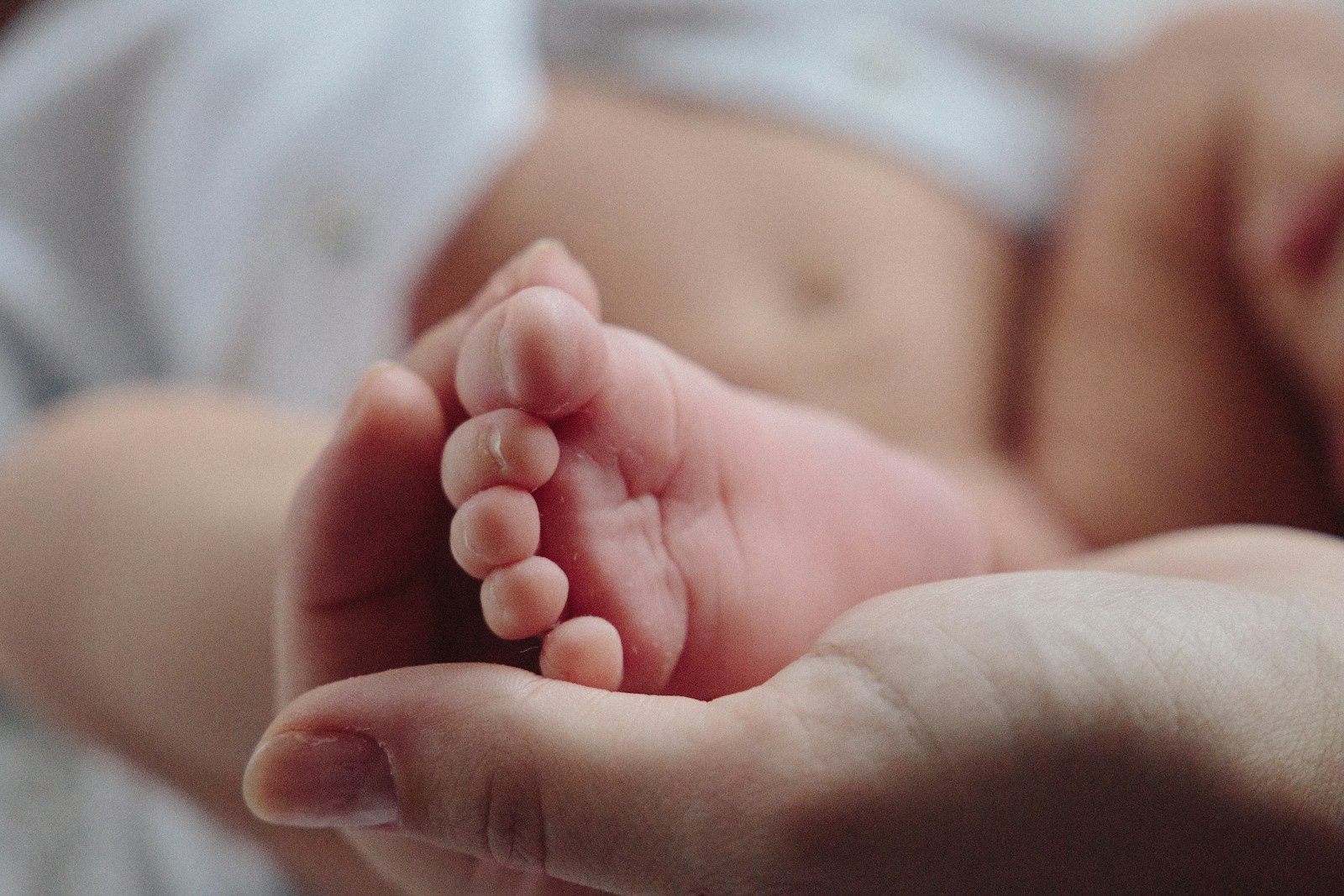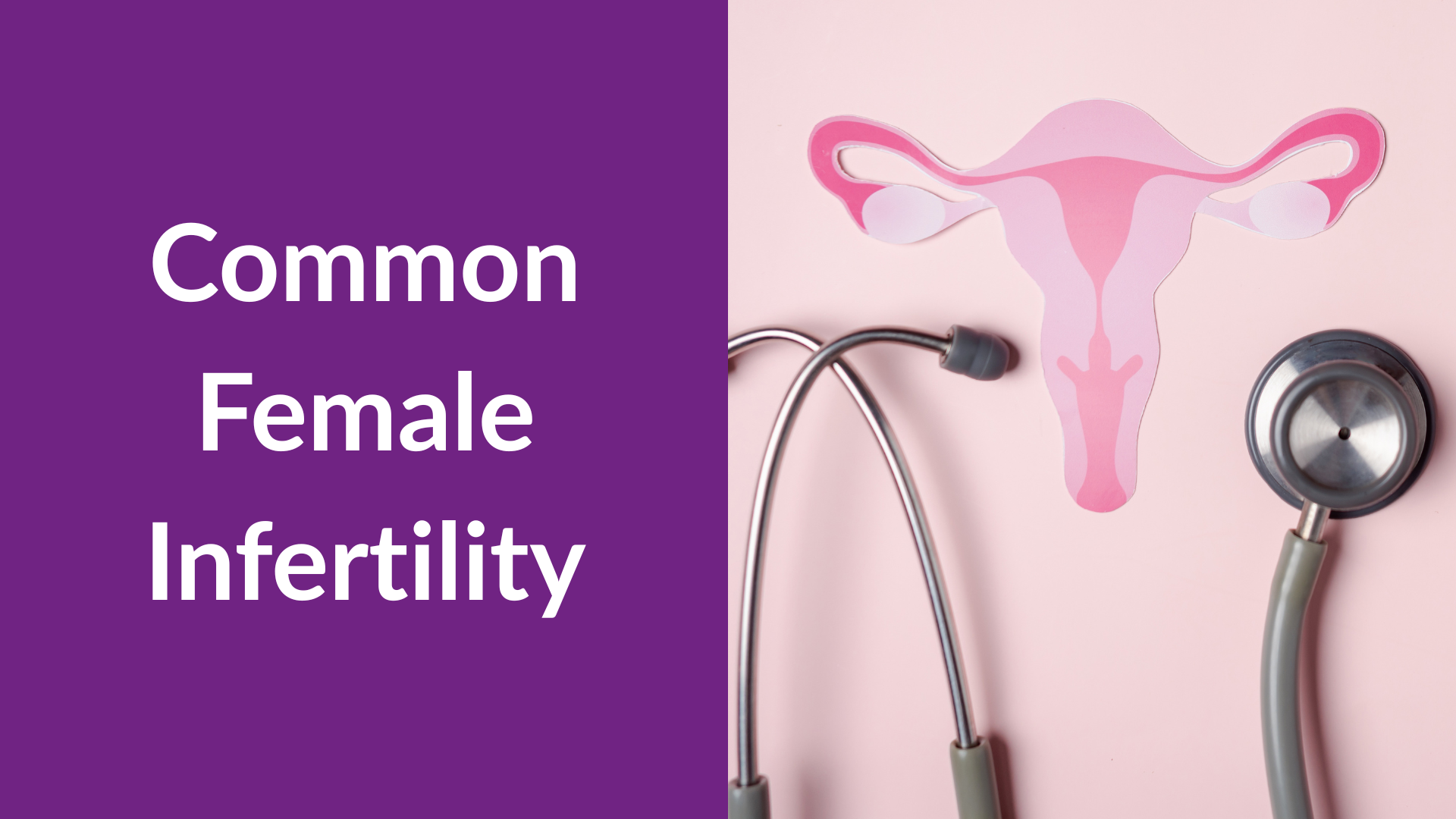Infertility can be a deeply emotional journey, and understanding its causes is a crucial first step toward finding a solution. Female infertility, in particular, affects millions of women worldwide and accounts for approximately one-third of all infertility cases. In this article, we will discuss the most common causes of female infertility, the signs and symptoms to watch for, and when to seek medical support.
What Is Female Infertility?
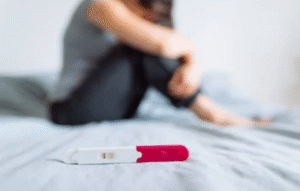

Female infertility is defined as the inability to conceive after 12 months of regular, unprotected sexual intercourse if you are under 35, or after 6 months if you are 35 or older. It may also include the inability to carry a pregnancy to term. Infertility can be caused by a range of factors, including ovulatory disorders, structural abnormalities, lifestyle choices, or unknown reasons.
Most Common Causes of Female Infertility
Ovulation Disorders
Irregular or absent ovulation is the leading cause of female infertility. Without a mature egg being released, fertilization cannot occur.
Key conditions
- Polycystic Ovary Syndrome (PCOS): A hormonal disorder that interferes with ovulation and is often linked to insulin resistance.
- Primary Ovarian Insufficiency (POI): Loss of normal ovarian function before age 40.
- Hypothalamic Dysfunction: Caused by extreme stress, weight changes, or excessive exercise, affecting hormone production.
- Hyperprolactinemia: High level of prolactin that disrupt ovulation.
Fallopian Tube Damage or Blockage
Fallopian tubes transport the egg to the uterus, if they are blocked or damaged, sperm cannot meet the egg.
Common causes include
- Pelvic Inflammatory Disease (PID)
- Sexually transmitted infections (e.g., chlamydia, gonorrhea)
- Past abdominal or pelvic surgeries
- Ectopic pregnancies
- Endometriosis-related scarring
Uterine or Cervical Abnormalitie
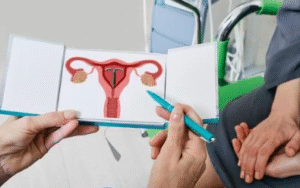

Conditions to considerFibroids: These are the noncancerous growths in or around the uterus.
- Polyps or adhesions: Scar tissue nside the uterine cavity.
- Congenital abnormalities: Such s a septate or bicornuate uterus.
- Cervical stenosis: Narrowing of te cervix.
- Hostile cervical mucus: The mucs prevents sperm from traveling effectively.
EndometriosisEndometrial tissue grows outside the uterus, causing pain, inflammation and scarring. This can affect various factors such as egg quality, tube function, and mplantation.
Age-Related Frtility Decline
A woman’s fertiliy naturally declines with age. Egg quality and quantity begin to significantly decrease after age 35, makng conception more difficult.
Other Contribting Factors
Lifestyle and Envronmental Influences
- SmokingAlcohol use
- Obesity r being underweight
- Poor nutition
- Exposurexually Transmitted Infections (STIs)
Undiagnosed or untreated STIs can cause permanent damage to reproductive organs, particularly the fallopian tubes.
Unexplained Infertility
In up to 20% of cases, no clear cause is identified despite thorough testing. This does not mean fertility treatment is ineffective—it just means the exact issue is harder to pinpoint.
Signs and Symptoms of Female Infertility
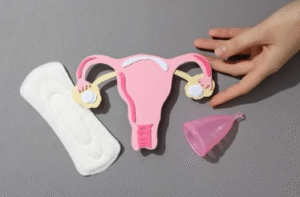

- Cannot conceive after a year (or six months for women over 35)
- Irregular or absent periods
- Very painful periods
- History of pelvic infections or endometriosis
- Recurrent miscarriages
- Signs of hormonal imbalance (acne, facial hair, weight gain)
When to See a Fertility Specialist?
- You’re trying for baby over a year being under the age of 35
- You’re over 35 and haven’t conceived after six months
- You have irregular periods
- You have any reproductive health issues
- You’ve had multiple miscarriages
- You or your partner has a history of infertility
Diagnosis and Testing
- Ovulation tracking
- Hormone blood tests
- Pelvic ultrasound
- Hysterosalpingogram (HSG)
- Laparoscopy
- Transvaginal ultrasound
- Ovarian reserve testing
Treatment Options for Female Infertility
The treatment depends on the underlying cause:
- Lifestyle changes: Weight management, stopping smoking, reducing alcohol intake
- Medications: To stimulate ovulation (e.g., Clomid, letrozole)
- Surgery: To remove fibroids, polyps, or scar tissue
- Intrauterine insemination (IUI): Direct placement of sperm into the uterus
- In vitro fertilization (IVF): Fertilization outside the body, followed by embryo transfer
- Donor eggs or embryos: For women with poor egg quality or premature ovarian failure
Can Female Infertility Be Prevented?
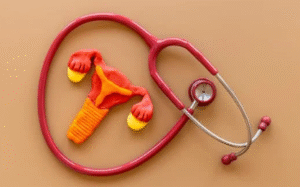

- Maintaining a healthy BMI
- Avoiding smoking and excess alcohol
- Treating STIs promptly
- Managing stress
- Scheduling regular gynecological checkups
Final Thoughts
Female infertility is a common and often treatable issue. With early diagnosis and appropriate intervention, many women can achieve successful pregnancies. Understanding the root causes and available treatment options is the first step toward hope and healing.
If you’re struggling to conceive, you’re not alone—and support is available.
